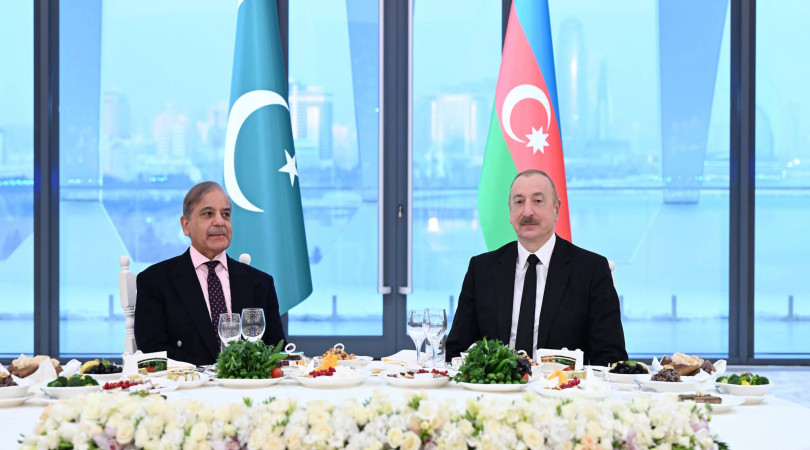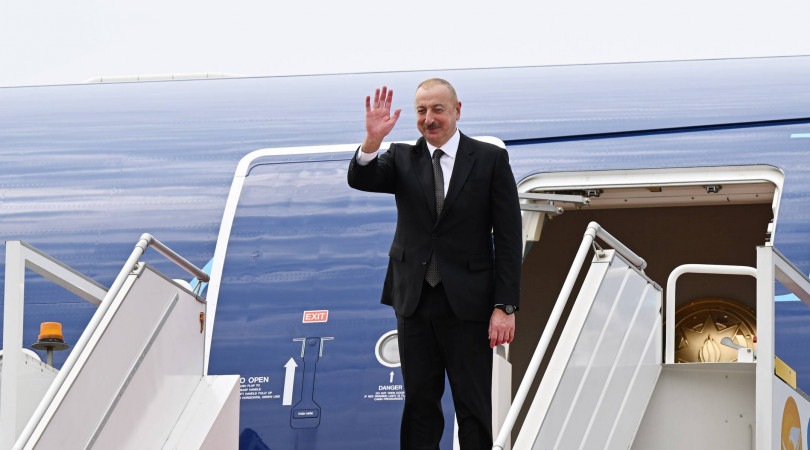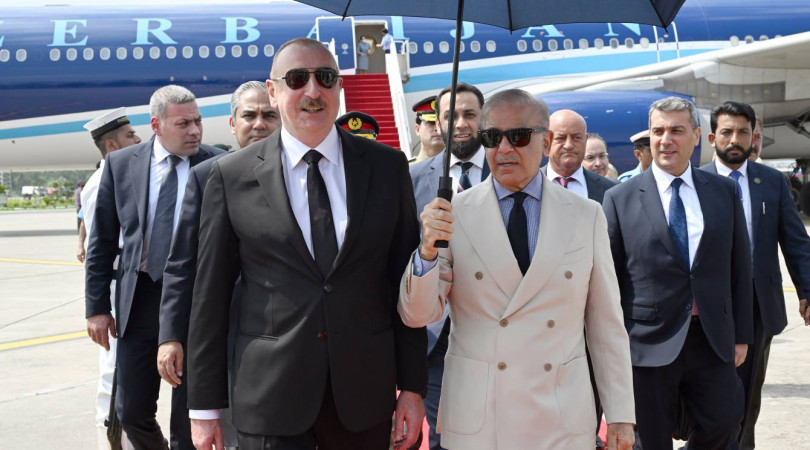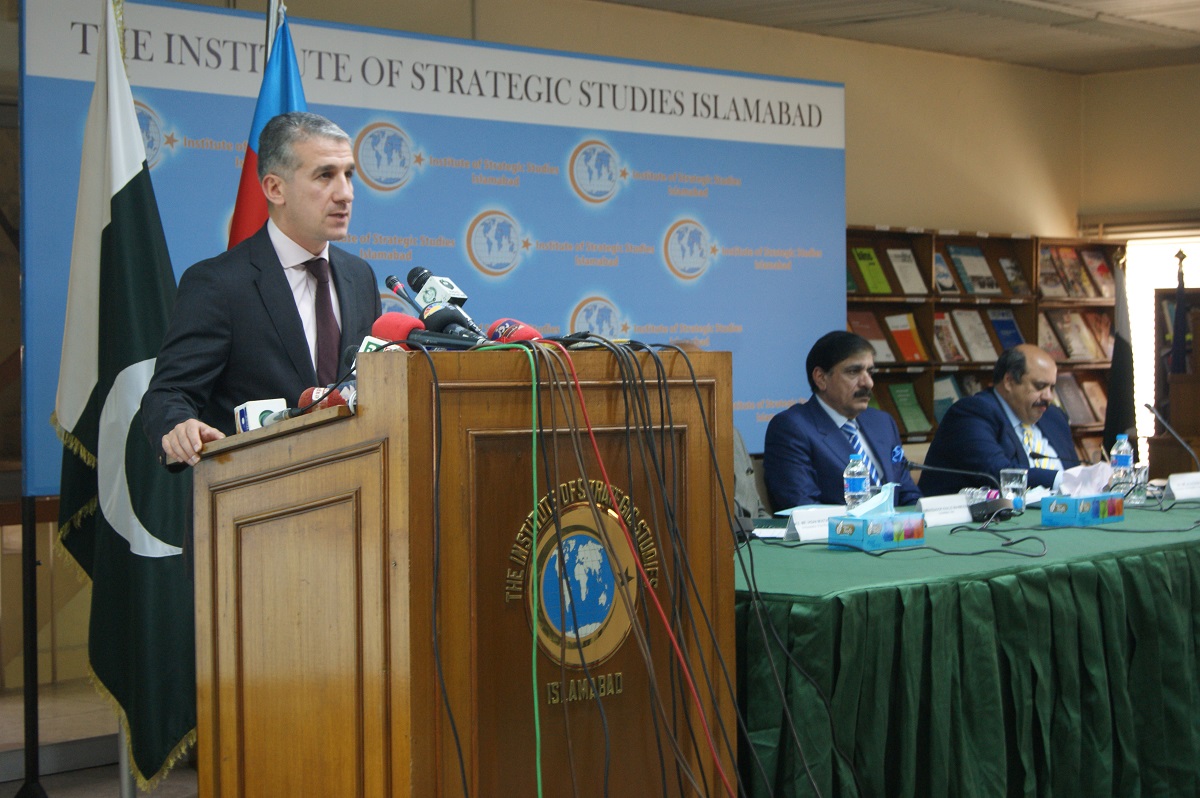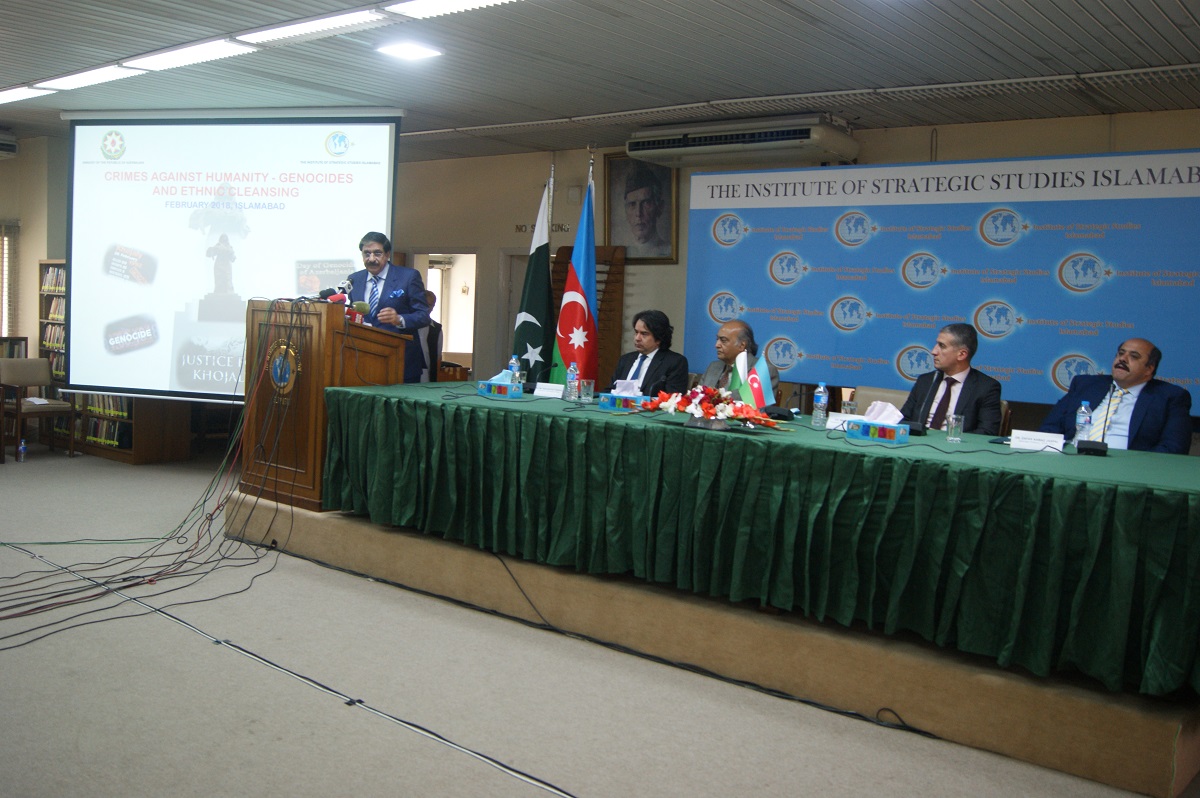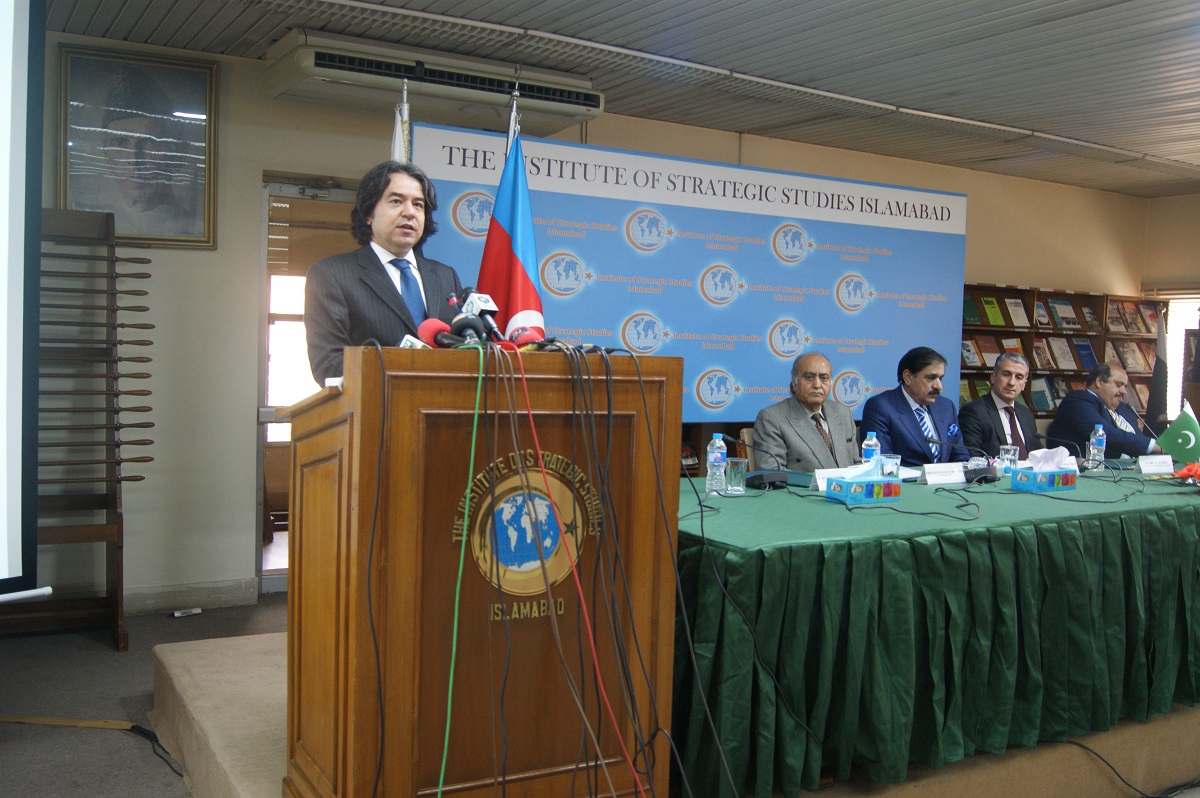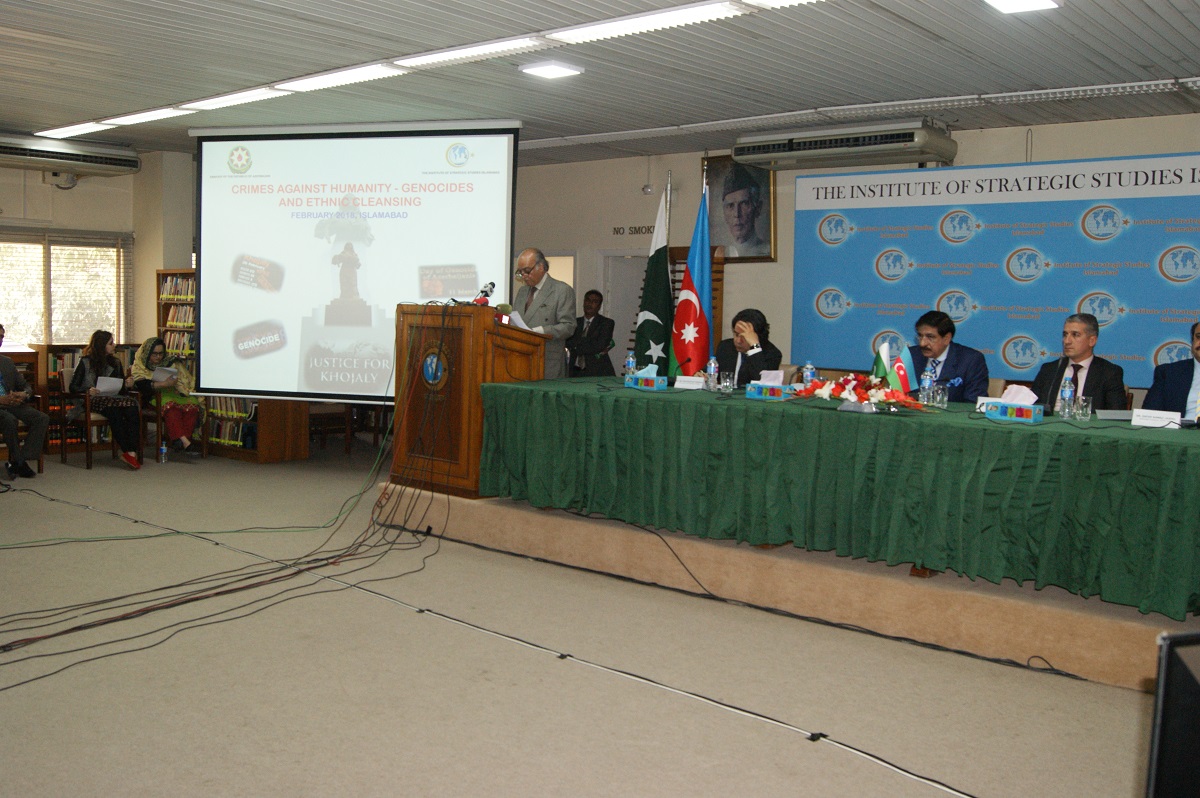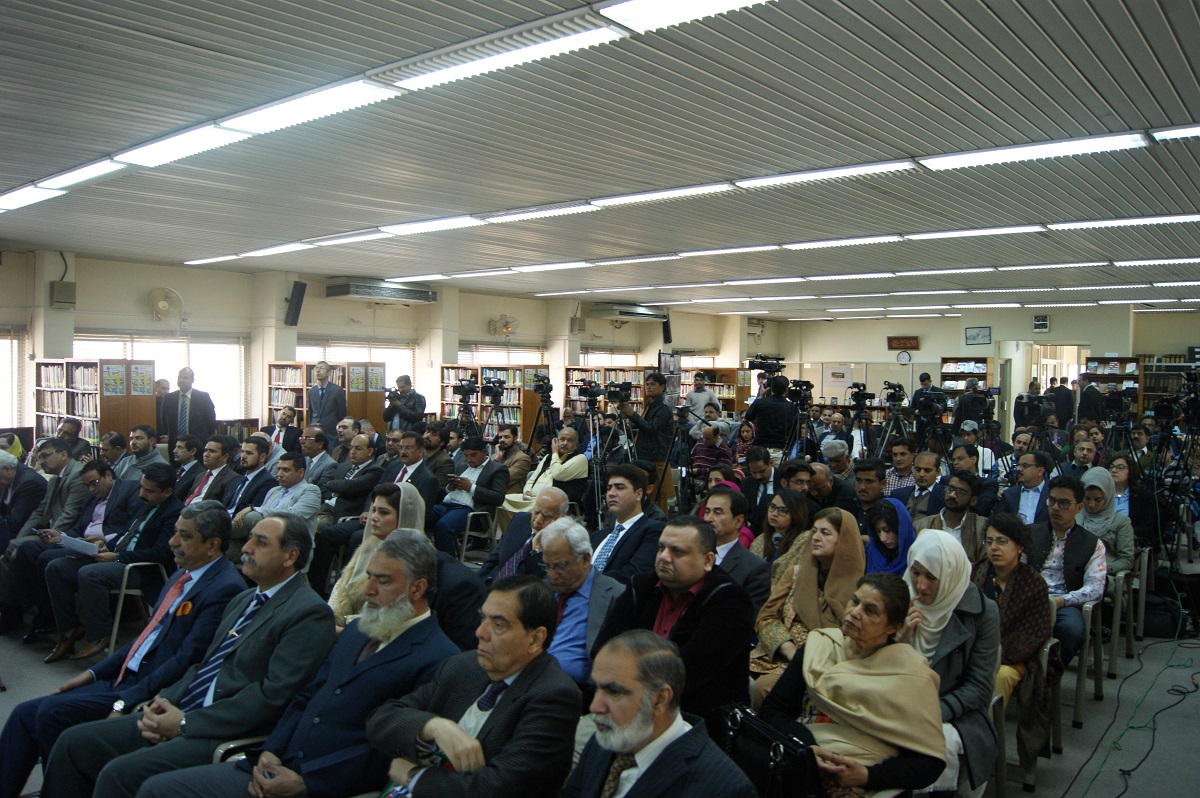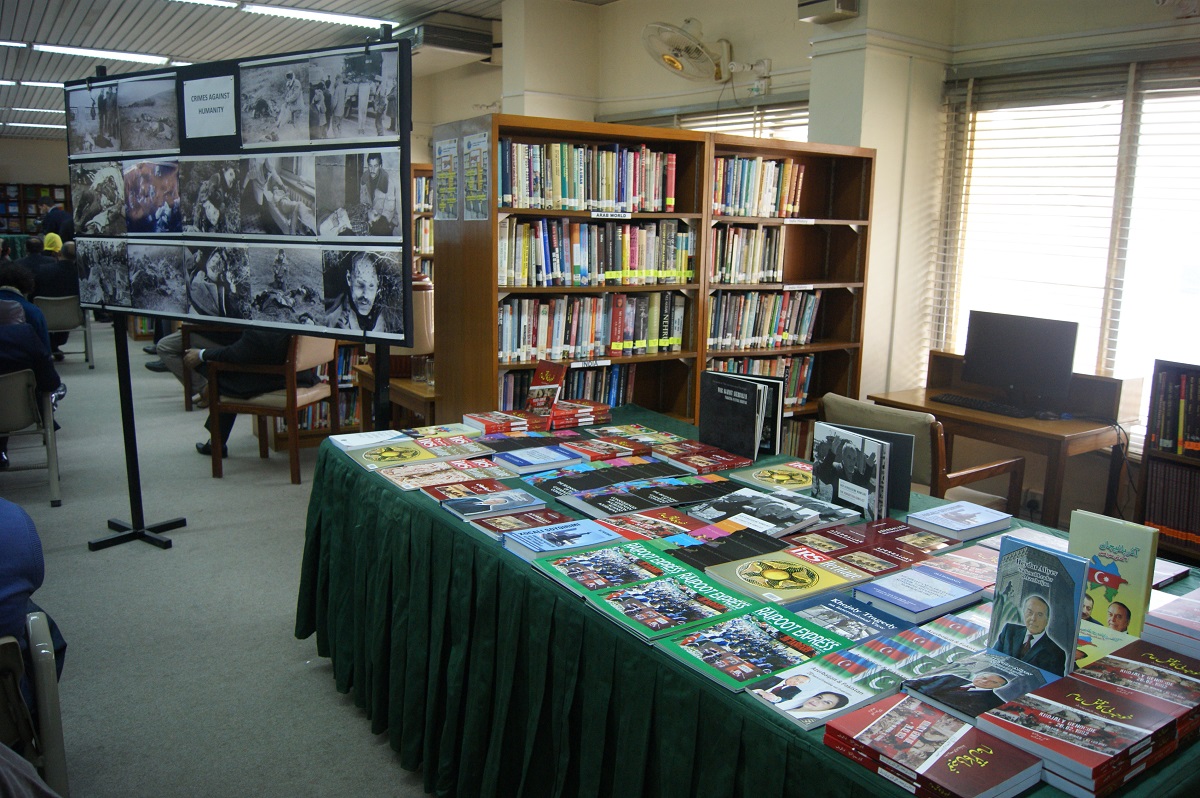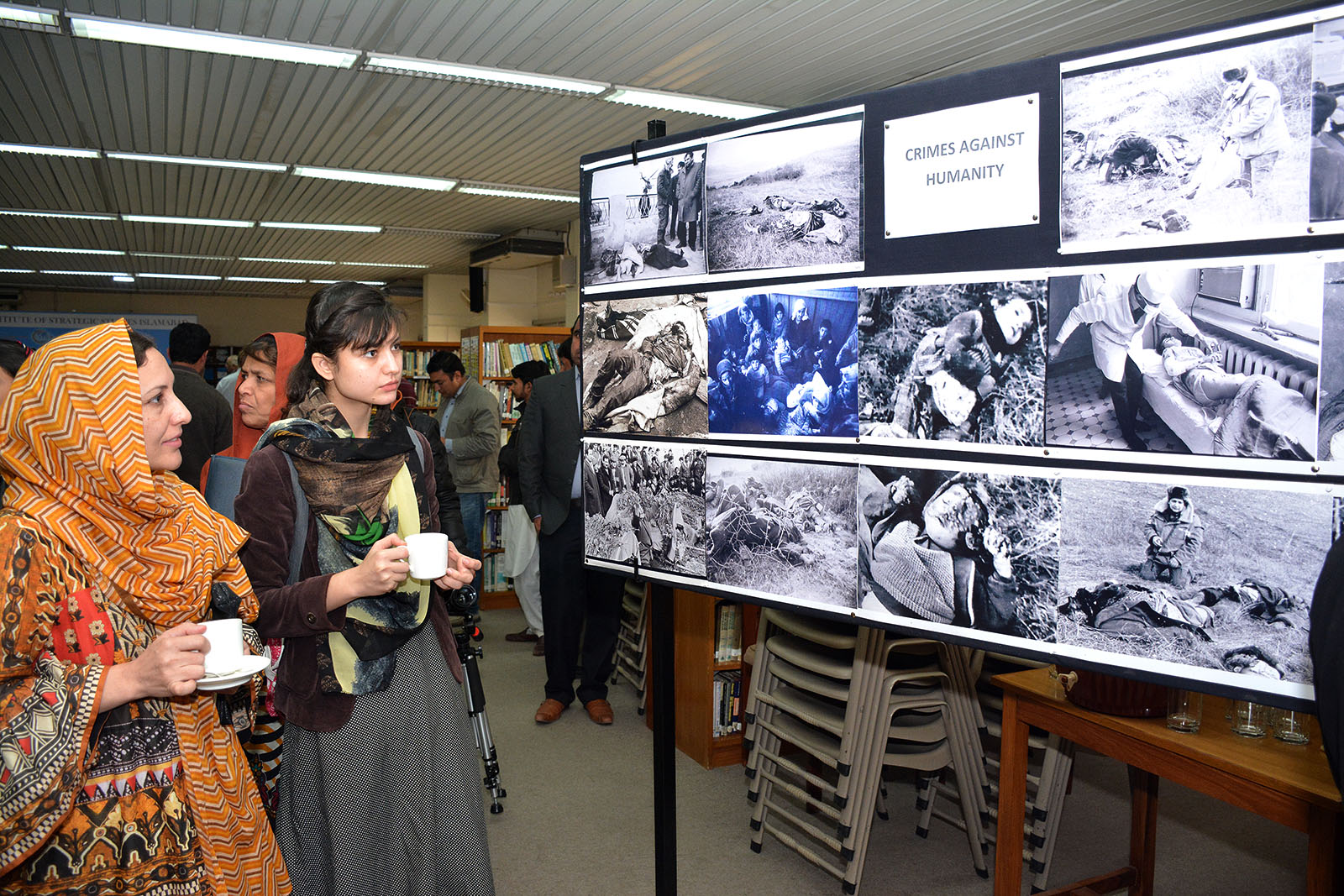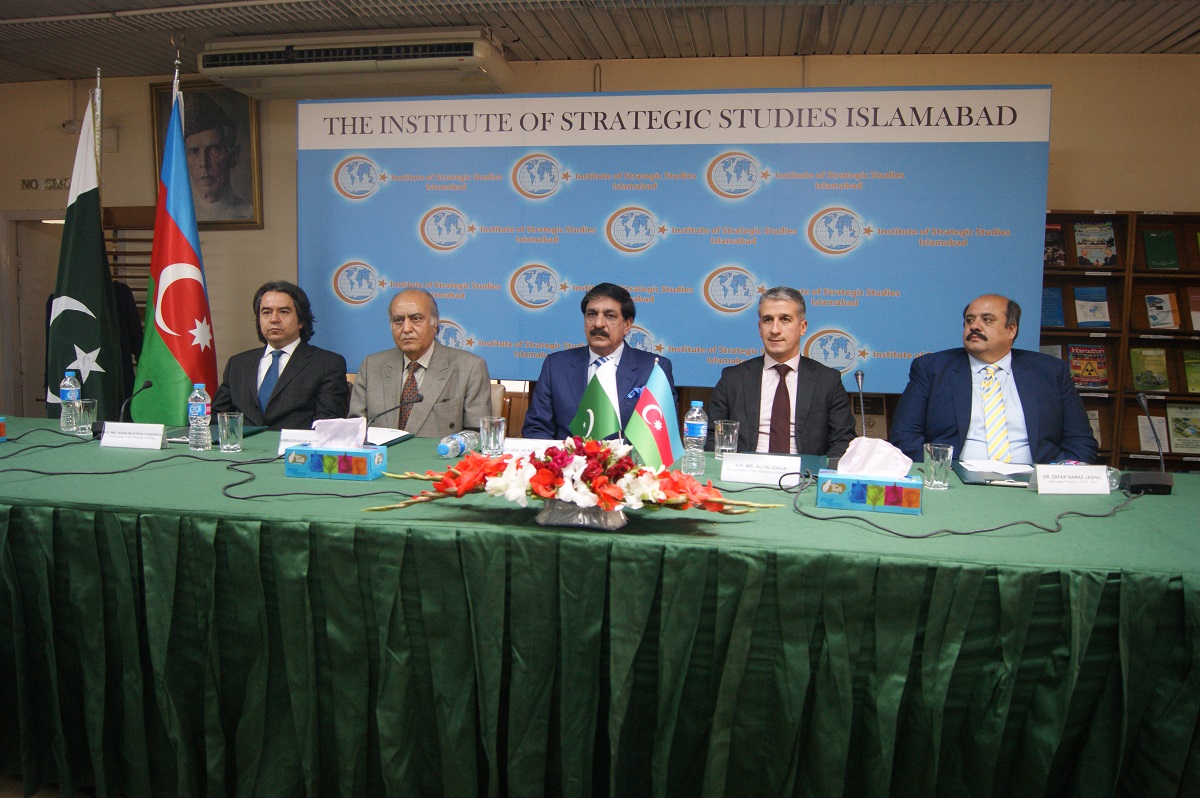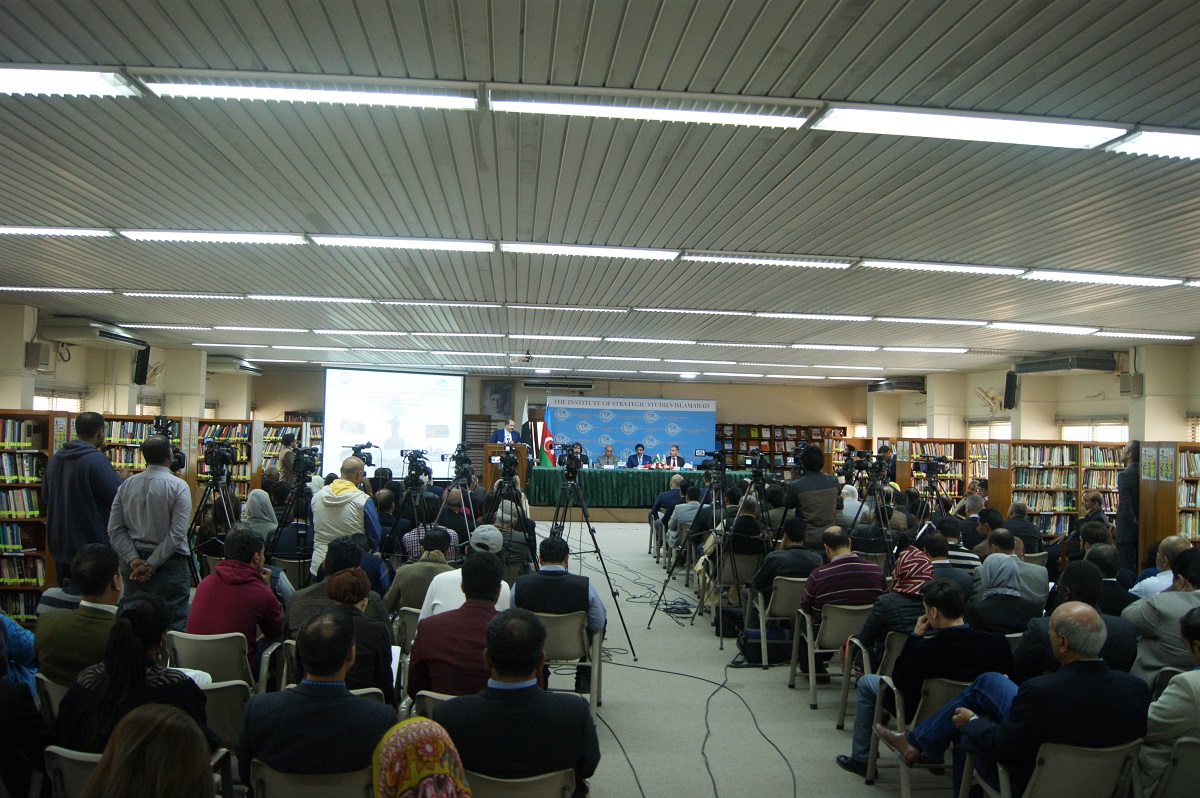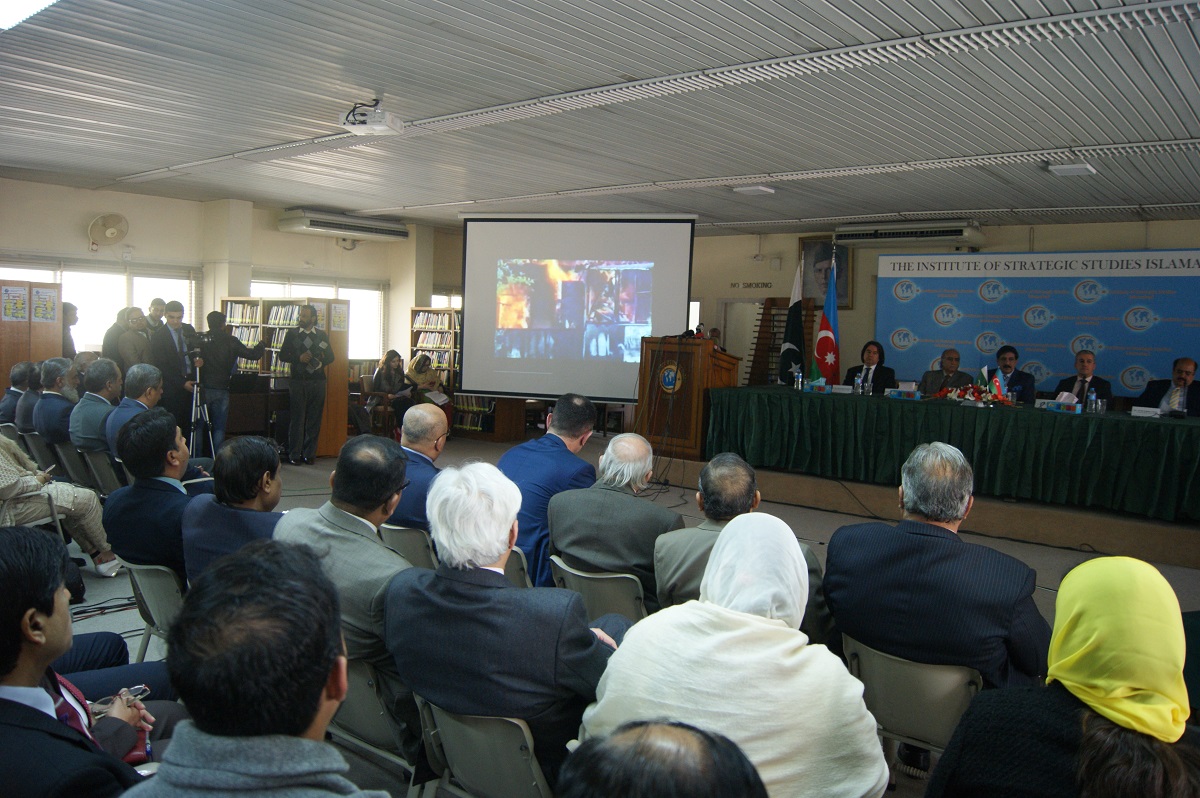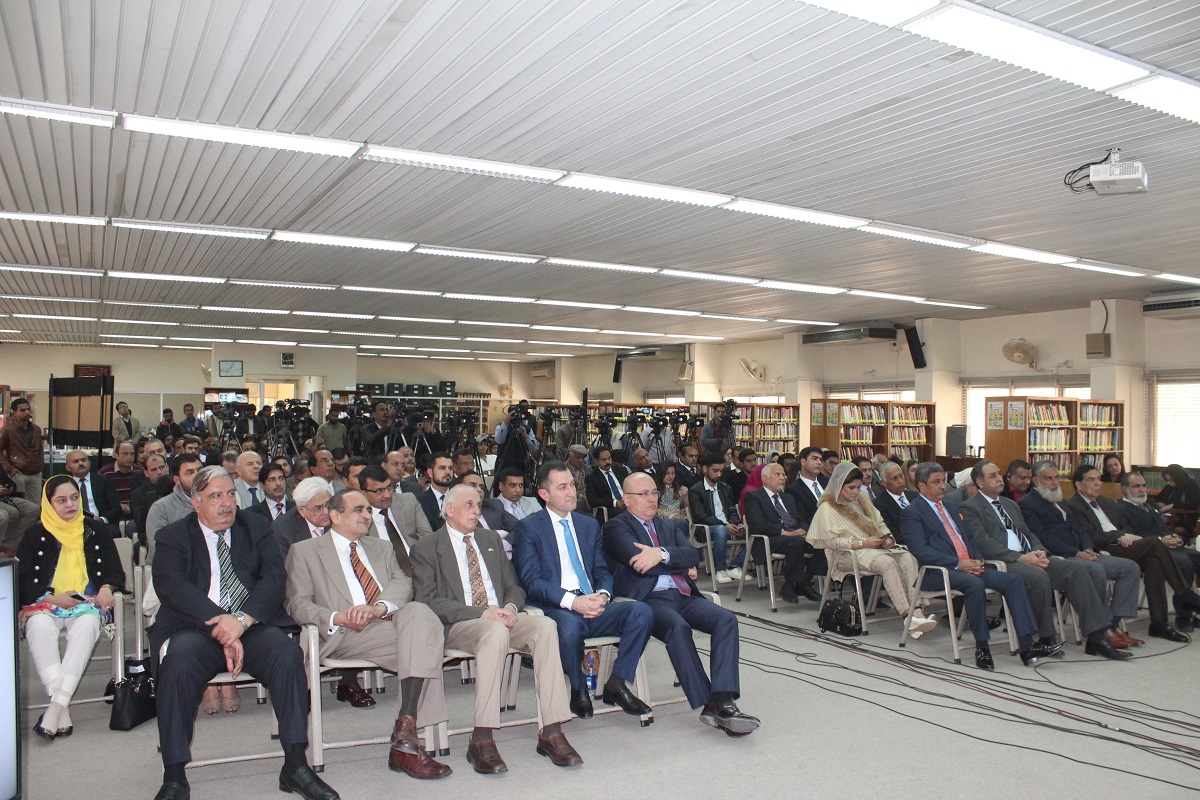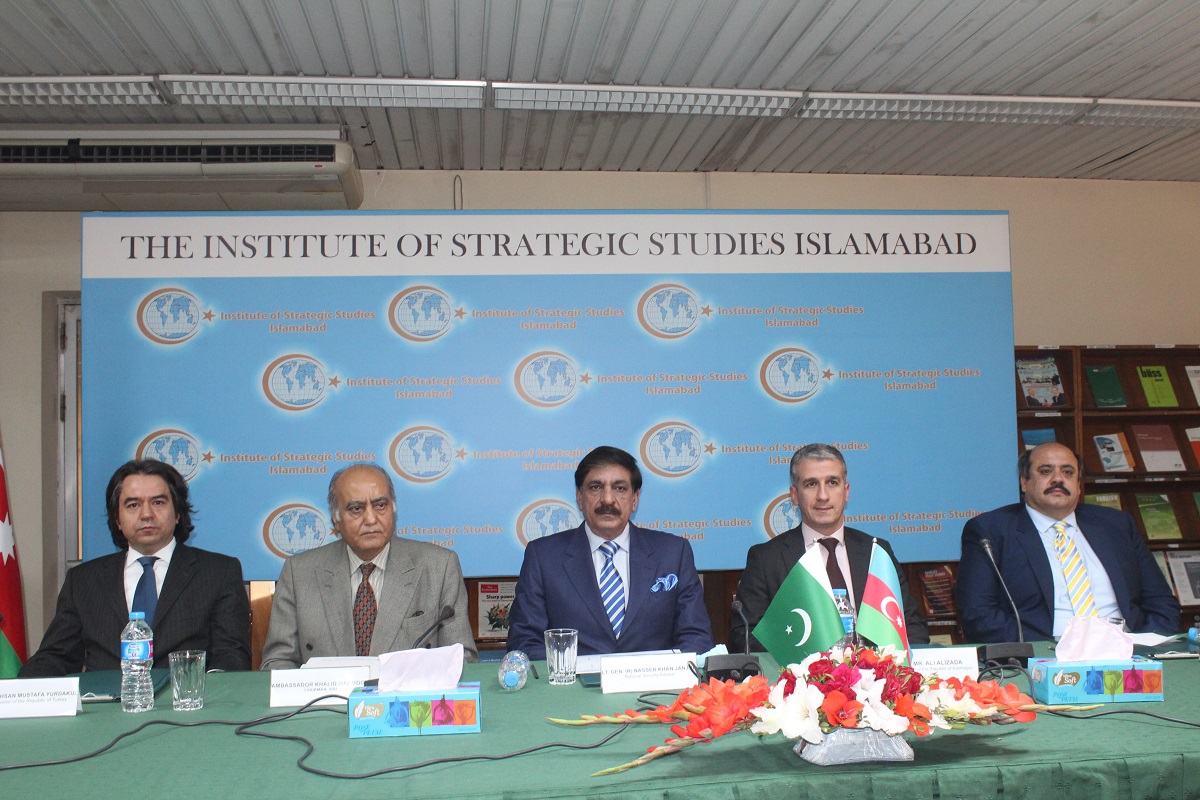Seminar: “Crimes Against Humanity - Genocides and Ethnic Cleansing”
Seminar on “Crimes Against Humanity-Genocides and Ethnic Cleansing” organized by the Institute of Strategic Studies Islamabad (ISSI) of the Ministry of Foreign Affairs of Pakistan and the Embassy of the Republic of Azerbaijan to Pakistan and dedicated to the 100th anniversary of the “Day of Genocide of Azerbaijanis-March 31(1918)” and 26th anniversary of the “Khojaly Genocide (February 26, 1992)” was held in ISSI, on February 20, 2018.
“The genocide of Khojaly shows that the world of today still has to go a long way to invest and preserve humanity.” This was stated by Lt. Gen. (R) Nasser Khan Janjua, National Security Advisor of Pakistan, during his address as Chief Guest, at a Seminar on “Crimes Against Humanity-Genocides and Ethnic Cleansing.” The seminar was organized by the Institute of Strategic Studies Islamabad (ISSI) in collaboration with the Embassy of the Republic of Azerbaijan and held at the Institute today to mark the 100th anniversary of 1918 genocide of Azerbaijanis and also 26th anniversary of the Khojaly genocide.
Other dignitaries of the seminar included; H.E. Mr. Ali Alizada, Ambassador of the Republic of Azerbaijan; H.E. Mr. Ihsan Mustafa Yurdakul, Ambassador of the Republic of Turkey and Dr. Zafar Nawaz Jaspal, Professor, School of Politics and International Relations, Quaid-i-Azam University.
A short video of the atrocities committed during the Khojaly genocide was also shown on the occasion.
Lt. Gen. (R) Janjua stated that the sufferings of both the people of Kashmir and Azerbaijan are very much common. Both countries share identical position on both the Nagorno-Karabakh and Kashmir conflict. He stated that more than ever before, the soldiers of today have to learn to not be unethical. Kashmir is in a constant state of unrest because the state of India is committing crimes against humanity in Kashmir on a daily basis and is testament to how strategic and economic interests can overwhelm humanity.He also congratulated Azerbaijan on its remarkable progress across a wide spectrum in the past 25 years, which bears testament to the farsightedness of its leaders.
H.E. Mr. Ali Alizada gave a detailed overview of the Khojaly genocide and said that as with other such crimes, it can never be erased from history. He pointed out how the Kashmir issue also awaits justice and said that both the Khojaly and Kashmir issues should be solved in an amicable way in accordance with international laws. The past genocides and mass atrocities serve as a reminder as to what is at stake if the international community lets genocide happen again. “All the tragedies that have befallen Azerbaijan in the 19th and 20th centuries, accompanied by the seizure of our land, have been different stages of a conscious policy of genocide and etnic cleansing systematically applied by the Armenians against the Azerbaijani people. As National Leader of Azerbaijan Heydar Aliyev said: “Khojaly massacre is continuation and the bloodiest page of the policy of ethnic cleansing and genocide continuously conducted by the Armenian chauvinists and nationalists against the Azerbaijanis over around 200 years.””
H.E. Mr. Mr. Ihsan Mustafa Yurdakul said that Azerbaijan’s suffering is Turkey’s suffering as well. He said that humanity is not doing enough to resonate this pain in collective memory, nor is it doing enough to prevent these crimes from taking place again. In order to resolve this issue, the territorial integrity of Azerbaijan should be made clear first of all. This calls for engagement, which is falling on deaf ears on part of Armenia since they are busy promoting a very unjust narrative of their own. This needs to be stopped.
Dr. Jaspal gave a brief history of genocides and crime against humanity citing them as an old phenomenon. He said that crimes against humanity gain more momentum if ignored. Thus, every instance of crime against humankind must be accounted for. He stated that if security, peace and prosperity are to be established at both regional and international level, the international community will have to adopt statutes without identifying ethnicity or religion. Otherwise, the phenomenon of radical extremism will arise.
Earlier in his welcome remarks, Chairman ISSI, Ambassador Khalid Mahmood talked about how Pakistan has always supported the just Azeri stance. He said that there is a marked similarity between the people of Kashmir and the people of Azerbaijan. Both have suffered a horrendous tale of repression. Like Armenia, India too remains in defiance of human rights and international humanitarian laws and remains in violation of UN Security Council resolutions. He said that Pakistan is beholden to the people of Azerbaijan for their steadfast principles regarding Kashmir, and sooner or later justice will triumph and prevail.

